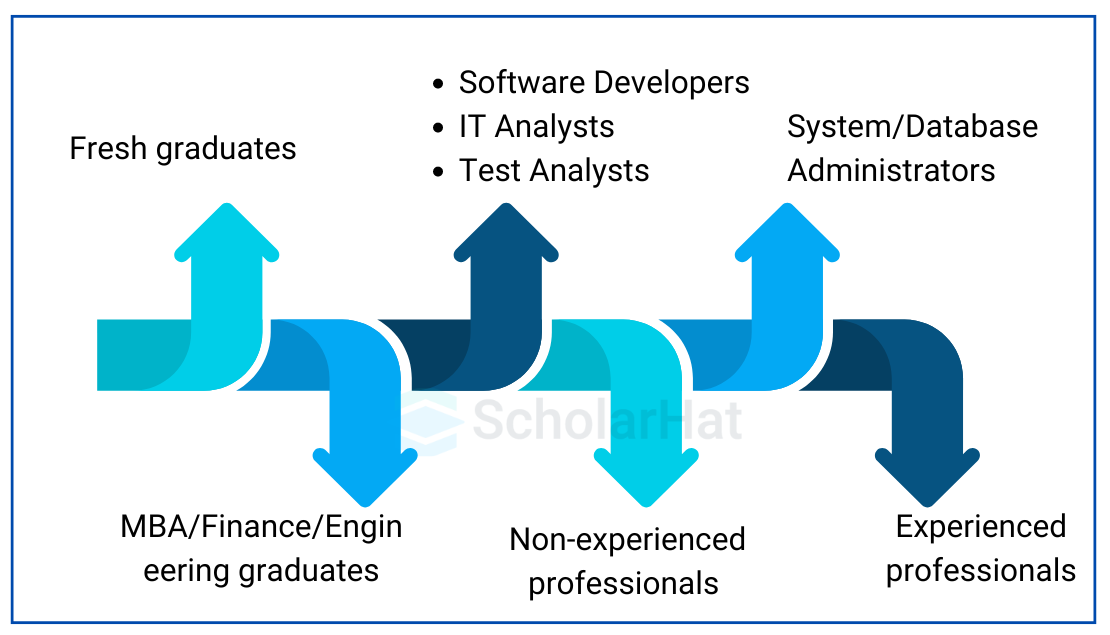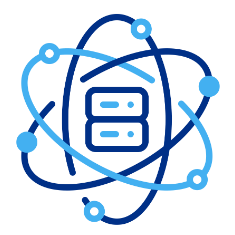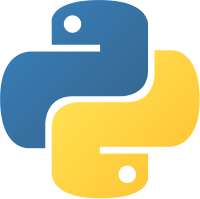18
AprWho is a Data Analyst? Skills, Roles, Salary & Career Path Explained
Data Analyst
The Data Analyst turns data into insights that companies can use to enhance their decision-making processes. Have you ever wondered how big organizations determine which products to create next or how to enhance their services for the future? Well, it's all thanks, to data analysts who go through the data and extract information that benefits the company.
So in this Data Science Tutorial, we will explore who is a Data Analyst which will also include the Data Analyst's Skills, Roles, Salary & Career Path. If you're also interested, in becoming a Data Analyst all you need to do is read this article. Follow the steps outlined within it.
What is Data Analytics?
The process of extracting knowledge from data to support more informed business decisions is known as data analysis. There are normally five iterative stages involved in data analysis:
- Stage 1: Identify the data you wish to analyze.
- Stage 2: Collect the data.
- Stage 3: Prepare the data for analysis, and clean it up.
- Stage 4: Examine the information.
- Stage 5: Interpret the analysis's findings.
Who can become a Data Analyst?

What are the responsibilities of a Data Analyst?
A person who gathers and assesses information to tackle a problem is referred to as a data analyst. Besides working with data this occupation also involves communicating discoveries.
Several data analysts perform the following tasks daily:
1. Collect data
- Analysts frequently assemble data on their own.
- This can entail carrying out surveys, monitoring the attributes of website visitors, or purchasing data sets from experts in data collection.
2. Clean data
- Unprocessed data may have mistakes, inconsistencies, or duplicates.
- To prevent inaccurate or distorted interpretations, cleaning the data entails preserving its quality in a spreadsheet or using a computer language.
3. Model data
- This comprises building and planning a database's structures.
- You might decide which data kinds to gather and keep.
4. Analyze data
- Analyzing data entails identifying patterns or trends that will assist you in addressing the current query.
5. Present
- One of the most important aspects of your work will be sharing the findings with others.
- You compose reports, make visual representations like graphs and charts, and give information to interested parties.
6. Analyze data
- Analyzing data entails identifying patterns or trends that will assist you in addressing the current query.
7. Presentation
- One of the most important aspects of your work will be sharing the findings with others.
- You compose reports, make visual representations like graphs and charts, and give information to interested parties.
Data Analyst's Tools and Technologies
Data analysts often use different tools to make their work more accurate. Some common tools in the data analytics industry are as:
- Microsoft Excel
- Google Sheets
- SQL
- Tableau
- R or Python
- SAS
- Microsoft Power BI
- Jupyter Notebooks
Key Skills for Data Analysts
1. Technical Skill
Programming Languages
- Ability to manipulate and analyze data using languages such as Python, R, and SQL.
Data Visualization
- It is the process of creating visual representations of data using programs such as Excel, Power BI, and Tableau.
Statistical Analysis
- Knowledge of statistical techniques and programs, such as MATLAB, SAS, and SPSS, is necessary for statistical analysis.
Database management
- It refers to the ability to administer and query databases utilizing PostgreSQL, MongoDB, Hadoop, MySQL, and other SQL and NoSQL databases.
2. Capabilities for Analysis
Data Cleaning
- The capacity to verify the accuracy and completeness of data by cleaning and preprocessing it.
Critical Thinking
- Excellent ability to recognize patterns and trends in data and extrapolate implications.
Problem-Solving
- Skill in recognizing problems and formulating calculated answers based on data insights.
Paying close attention to detail
- Managing data with accuracy to prevent mistakes and guarantee excellent analysis.
3. Soft Skills
Communication
- Clear presentation of data findings to stakeholders, both technical and non-technical, requires effective communication skills.
Teamwork
- The capacity to work cooperatively with cross-functional groups to obtain information needs and offer analytical assistance.
Time management
- It is the skill of effectively overseeing several tasks and due dates.
4. Subject-Matter Expertise
Industry-Specific Expertise
- Knowledge of the particular field in which one is employed, such as technology, retail, healthcare, or finance.
5. Advanced Methods of Analysis
Machine Learning
- An understanding of the fundamentals of machine learning algorithms and how predictive analytics uses them.
Big Data Tools
- You have to have a working knowledge of massive data processing
The Pay Scale of a Data Analyst
The salary of a data analyst, in India can vary significantly depending on factors like experience, location, industry, and the organization's size.
Here is a general breakdown of the pay scale for data analysts in India:
1. Entry Level Data Analyst
| Experience | Salary Range |
| 0-2 years | ₹3,00,000 to ₹5,00,000 per year |
2. Mid Level Data Analyst
| Experience | Salary Range |
| 2-5 years | ₹5,00,000 to ₹8,00,000 per year |
3. Senior Data Analyst
| Experience | Salary Range |
| 5 -10 years | ₹8,00,000 to ₹15,00,000, per year |
A Step-by-Step Guide to Becoming a Data Analyst
1. Educational Experience
Become a Bachelor's Degree Holder:
- Pursue a degree in a relevant subject matter, such as computer science, statistics, mathematics, or economics.
- This offers a solid grounding in quantitative and analytical abilities.
2. Advance Your Technical Knowledge
Learn the Languages of Programming:
- Python is a popular language for machine learning and data analysis.
- R is an additional widely used language in statistical analysis.
- SQL is a necessary language for database management and querying.
| SQL Server Course |
Information Visualization:
- Learn how to use programs like Excel, Power BI, and Tableau to portray data visually.
Analytical Statistics:
- Recognize statistical software and techniques, including MATLAB, SAS, and SPSS.
3. Get Real-World Experience Through Internships
Seek entry-level jobs or internships to obtain practical experience in data analysis.
Initiatives:
- Take up practical projects.
- Take part in virtual contests.
Create a Portfolio:
- Make a portfolio showcasing your case studies, visualizations, and data analytic work.
- To share your work, make use of websites like GitHub.
4. Foster Soft and Analytical Skills
Data Preparation and Cleaning:
- To ensure your data is correct and prepared for analysis, learn how to clean and preprocess it.
Problem-solving and Critical Thinking:
- Gain the ability to think analytically and solve problems to evaluate facts and produce useful insights.
Interaction:
- Get comfortable communicating your results to both technical and non-technical audiences in a clear manner.
5. Make Professional Connections and Network
Join Groups for Professionals:
- Engage in local gatherings, professional associations, and internet discussion boards pertaining to data analysis.
Attend conferences for the industry:
- Attend webinars, workshops, and conferences to keep up with the newest developments and connect with specialists in the field.
Make Use of Social Media:
- Join forums that interest you, follow influential people in the field, and network with other data analysts using websites like LinkedIn.
6. Seek Certifications and Certifications in Advanced Education
To prove your abilities and improve your CV, think about getting certified. For example, consider the following:
- Professional Certificate in Google Data Analytics.
- Microsoft Certified: Data Analyst Associate, SAS Certified: Data Scientist
7. Apply for Jobs as Data Analysts
Customize Your Cover Letter and Resume:
- Emphasize your projects, experience, and pertinent abilities.
- Make sure your cover letter and resume are tailored to the particular position you are looking for.
Get ready for the interview:
- Prepare yourself to address case studies, provide technical answers, and go into great depth about your prior work.
- Practice frequent interview questions for data analysts.
Top Recruiters That Hire Data Analysts
- Ernst & Young
- IBM
- Accenture
- HCL
- TCS
- Deloitte
- WNS
The Future Scope of Data Analytics, in 2025
If we talk about the present year data analytics appear promising, with progress and trends shaping the landscape. Here we can learn about a few key areas where data analytics is can make a big impact;
1. Integration of Artificial Intelligence and Machine Learning
- Data analytics is becoming increasingly integrated with AI and ML technologies.
- These advancements can be analyses like predictive analytics and prescriptive analytics.
- Where algorithms not only predict future trends but also suggest some particular actions to achieve desired results.
2. Expansion of Big Data
- We can see that on devices, social media platforms, and other digital channels there is an abundance of data available for analysis.
- This vast pool of data can offer insights leading organizations to gain a better understanding of their customers and markets.
3. Real-Time Analysis
- In the present day, There is a growing demand for real-time analytics as businesses seek to make decisions based on data.
- Technologies such as stream processing and edge computing are enabling real-time data analysis, which proves important for sectors like finance, healthcare, and online retail.
4. Data Privacy and Security
- Data analytics comes with an increased focus, on ensuring data privacy and security.
- You will see that, In the coming years there will likely be a focus, on enhancing data security measures.
5. Data Accessibility
- A current trend is making data analysis tools user-friendly for technical professionals.
- This allows a wider range of professionals to engage in data analysis without requiring knowledge.
- This democratization of data empowers employees in organizations to utilize data for decision-making.
6. Enhancing Workforce Skills
- The need for data analysts is increasing steadily.
- Educational institutions and training programs are adapting to provide the workforce with skills in fields such, as data science, analytics, and related areas.
- The ongoing trend is projected to persist leading to a pool of individuals to fulfill the demands of the industry
Conclusion
The demand for data analysts is expected to rise offering career prospects with competitive pay and diverse opportunities in various fields. By investing in education acquiring certifications and gaining experience individuals aspiring to become data analysts can position themselves for success, in this industry. Also, consider our Data Science with Python Course for a better understanding of data analysis content.







